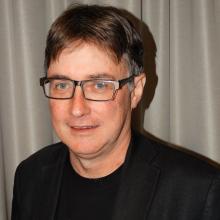A ground-breaking obesity study that will breath-test thousands of New Zealand schoolchildren is off to a promising start, its leaders say.

The ambitious study, involving around 2000 pupils in its first year, aims to reveal the role of little-understood sugar fructose in New Zealand's childhood obesity epidemic.
While fructose is the least understood sugar in our diet, studies have shown how it is probably a major contributor to metabolic diseases such as obesity and diabetes.
Targeted at schools with high proportions of Maori and Pasifika pupils, the study will involve pupils taking a simple breath test that measures hydrogen gas to record fructose absorption rates.
The research team, led by Prof Peter Shepherd, of the Auckland University-based Maurice Wilkins Centre, would then use the data to tease out how well New Zealand children absorb fructose - and what impact it could be having.
It was already known that there was a wide variation between individuals in the amount of fructose that could be absorbed from the gut into the bloodstream.
Those who were good at absorbing fructose were likely to retain more calories from sugar in diets than those who did not absorb it well, which could explain why some children were more at risk than others.
What the scientists discover could, therefore, prove crucial in identifying those most at risk from the modern food environment, which would allow targeted interventions.
One-third of school-aged Kiwi children were now considered overweight or obese, and one in nine children between 2 and 14 were obese, including 30% of Pacific children and 15% of Maori children.
Figures also showed one in five children living in socio-economically deprived areas were obese, compared with one in 50 children living in the least deprived areas.
Prof Shepherd said his colleagues had already performed brief tests on a small number of Auckland Girls' Grammar pupils to validate the use of the machines.
He was now looking to expand the programme, initially to Opotiki, in the Bay of Plenty, and the Far North.
"We are seeking sites outside the main centres, as this is where the greatest need is, and schools and communities are struggling to get the type of input city schools can get,'' Prof Shepherd said.














